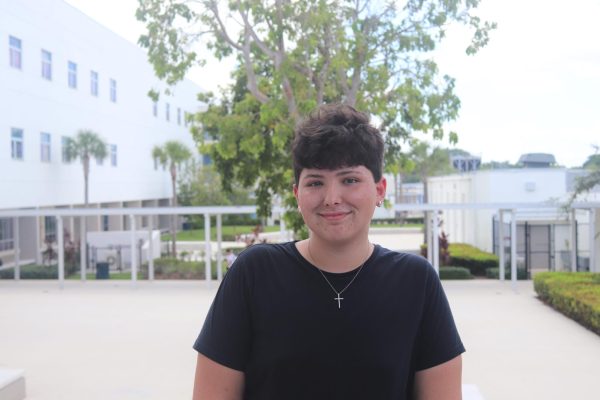Living in a world with a melting pot full of backgrounds, political beliefs and religions can make it tough to feel confident in your own opinions. As a 17-year-old Christian with politically independent, right-leaning beliefs, I often refrain from sharing my perspective on social and political issues.
Many are quick to throw out blanket statements like, ‘Treat others how you would want to be treated’ or ‘Treat others with kindness and positivity,’ yet they do not apply these rules when hearing the opinions of others. Depending on the time and place, it is easy to find yourself in a room full of people who do not have the same beliefs, with others being quick to judge when you speak out in a room full of people with opposing views. However, being a hardcore liberal, hardcore conservative or anything in between does not define you or anyone else as a person.
Even in school environments that are supposed to be safe, supportive and welcoming, stigmas surrounding beliefs and identity exist. This, in turn, creates an environment where it is hard to be comfortable and confident within your own skin.
Across the U.S., stories in the news constantly cover violent incidents stemming from the offender having some sort of prejudice toward the victim. According to the U.S. Department of Justice, in 2022 alone, 13,728 people were victims of hate crimes. These victims were targeted solely because of their religion, race, sexual orientation, etc..
Having different beliefs and backgrounds should be near insignificant differences between people. However, they become the reason behind violent crimes or hate speech.
Often, our firm beliefs and close-mindedness come from us staying in the same environment for years on end. We surround ourselves with people from the same area, religion and identity, which reinforces our biases as these views are all we are exposed to. This is why so many people change when they leave for college — for the first time in their lives, they are surrounded by various beliefs long-term and are allowed to form their thoughts, feelings and beliefs.
Moreover, what may seem so obvious or logical to one person could be entirely foreign to another. Acknowledging and learning to accept that everyone is different is the first step toward recognizing the validity of others’ beliefs. Even when faced with disagreement, respecting others and their views makes room for constructive conversations and increases insight into other cultures, backgrounds and identities.
Having the ability to have respectful discussions gives us an upper hand as adults. Especially in professional settings, one has to understand how their words and actions might affect others. Your differences do not make you opposites. At the end of the day, we are all human.
It is time for everyone to heal their past wounds and learn to respect others’ beliefs. There is no reason to tear others down or risk friendships and relationships over personal values or identity. We should all agree to disagree on certain things, and political, religious and social discussions should be able to be held without creating a hostile environment. Take discussions on opposing beliefs as a way to gain more societal awareness and be a more compassionate person. Embrace the power of a respectful disagreement.





